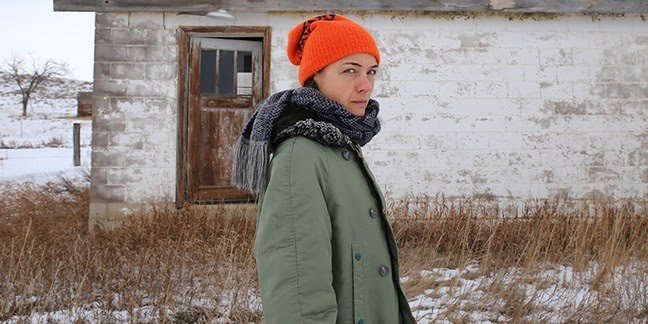People often talk about the “unifying power” of music, but what about music unifying an inherently anti-social thing such as mental health disorders? As much as music can, and often does, bring us together, what about those times when the last thing you want to do is be around other people? There is a significant strand of research that suggests that for people with mental health issues such as anxiety, depression and ADHD/Bipolar, music can be the best thing to soothe the racing minds of those un/lucky enough (depends on your point of view) to have these thoughts and feelings.
I nearly didn’t write this piece, partly because I’m still coming to terms with my own struggles with the above symptoms, but also due to reading Alana McArdle’s (formerly of Joanna Gruesome) piece on more or less the same issue, which summed it up so perfectly that it seemed pointless for me to open up and share the same experiences. The only reason I did (if you are still with me, dear reader) is because I finally got to witness Grouper, a.k.a Liz Harris, perform live, a person who in the, so far, relatively brief story of my mental health history, had played a key role in helping me feel normal again, even though I’m 99% certain she has no idea about that.
If it weren’t for this fact, I’d more or less just end up writing the same article as McArdle’s. Yes, I too have practised the same ritual of sitting in the bath and repeatedly listening to Harris’ haunting voice, accompanied by a tape hiss and either a single piano or guitar line for hours on end, at my lowest ebbs. I discovered both Grouper’s music and my manic depression (also known as bipolar disorder) around the same time. I had just out of a long-term relationship where it became apparent that there were some mental issues I hadn’t properly acknowledged at about the same point as Grouper’s previous record, Ruins, came out in 2014.
I first heard Harris’ crystalline melodies after a Post Louis band practice one day, when either Rob or Steph, I forget who, put on the latest Grouper record as a comedown of our high-energy practice, and I was immediately floored. “Who is this?!” I excitedly claimed, clearly still feeling the adrenaline rush of what I presume was a successful rehearsal (it’s hard to tell or remember sometimes) when I heard that voice, that piano, that atmosphere. This was unlike anything I’d ever heard before and yet it was also exactly what I was feeling underneath everything – I’ve never really experienced that before and barely have since.
I have “joked” in the past with friends about how Grouper, to me at least, is what my depression sounds like. Depression isn’t a fixed or tangible thing – hell, there’s still stigma attached to it and an underdeveloped amount of research towards the phenomenon – so to describe it as having a shape or a sound may seem a strange one. For me, Bipolar means being manically hyper and constantly wanting to socialise and use my time “productively” which leads to burnout days where I can’t face getting out of bed for a couple days at a time. But like how the expression “the black dog has returned for a visit”, Harris’s music is at times the only thing that can return me to feeling some sort of normality when things are really bad; she is, if you will, a coping mechanism I have developed.
Over several albums, EPs, titbits, movements, cycles, whatever you want to call them, she has released a music that is truly otherworldly, which perhaps is why two of her records are devoted to alien observation. Somehow, Harris replicates the valley or the void that I, and I’m sure many other depressives, feel when it seems like the entire world is out to destroy you because your mind has allowed you to think this as a plausible concept to happen. I have spent full days unable to get out of bed, imagining I’m at sea and floating farther and farther away from land and only Harris’s siren voice can, eventually, guide me back to the shore. The only other time I can listen to it is when I’m travelling (usually overnight) because that feeling of weightlessness that also comes with that activity is the only other place I can equate to my depressive episodes.
As well as Ruins, I have over the years, also been obsessed with her records Dragging a Dead Deer Up a Hill (2008) and The Man Who Died in His Boat (2013) and they all have special moments and qualities, though I couldn’t possibly single out any particular songs, as her music just doesn’t work like that. It sits on you, it floats around you, it elevates you until you are no longer really present, then it gently places you back down to earth on the other side of it.
So imagine my excitement, and anxiety, natch, at finally getting the chance to see Grouper live. Her new album Grid of Points wasn’t even out for another week when I got to attend her recent concert in Berlin, but I knew it wouldn’t exactly matter, as my imagination of her live show was that it would be quite like listening to her records; things like particular songs aren’t really important. However, as mentioned, I was slightly anxious about seeing her finally perform after almost four years of utter devotion, when her music is tied up with such a personal and emotional feeling in my psyche. What if I have a full-on emotional breakdown? I had just come out of another long-term relationship and considering my life ahead, after all, it was during a highly emotional time.
Thankfully, what I got was something much more pleasant, but in keeping with how her music makes me feel. Instead of sadness, I just experienced calm, something akin to a religious experience (I would guess) or an out-of-body experience. Harris performed for an hour, and yet it felt more like 10 minutes, so enraptured was I and every other fellow patron at the HAU1 Theatre that night. I couldn’t tell you what songs she played without looking it up, part of me doesn’t even really want to know because it would put added importance to certain tracks which I don’t want, I want to carry on enjoying the full records as they are meant to be heard. What is important though, is that my anxieties were unfounded (as they generally are, thanks to you, brain!) because, of course, Grouper doesn’t send me into a depression, she is the guiding light that holds my hand out of the darkness.
So from this one super-fan of what seems like many, thank you, Liz Harris. Thank you for creating art that connects with the deepest, darkest reaches of my mind, body and soul. I am lucky to have discovered your music because it quite possibly has saved my life on more than one occasion, and from what I can ascertain, many others too. And thank you, reader, if you are still here, for letting me share my experiences with depression.
Given the recent tragic new of Scott Hutchinson of Frightened Rabbit and Mastersystem’s suicide (still the largest killer of men under 45 in the UK) it is a subject on the minds of many at the moment. Scott will be deeply missed both as a person and as an artist, both of which consistently showed his warmth and humility, on his better days where he wasn’t mentally depressed to the point of hopelessness, which sadly, finally, happened last week.
If we are ever to improve mental health, it will be from all of us, mental issues or not talking about it, understanding and sharing, regardless of what form or whether you are afflicted, we can do this, together, and I hope this piece has inspired someone in some little way by sharing.




